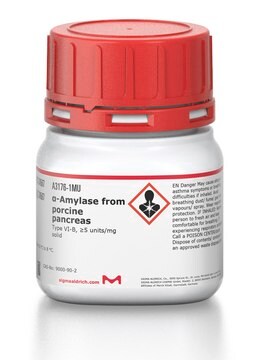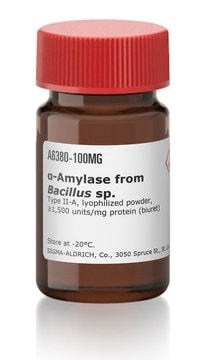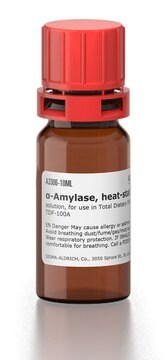A0521
α-Amylase from human saliva
Type IX-A, lyophilized powder, 1,000-3,000 units/mg protein
Synonym(s):
1,4-α-D-Glucan-glucanohydrolase
About This Item
Recommended Products
type
Type IX-A
Quality Level
form
lyophilized powder
specific activity
1,000-3,000 units/mg protein
composition
Protein, 5.0-15.0% biuret
greener alternative product characteristics
Waste Prevention
Design for Energy Efficiency
Learn more about the Principles of Green Chemistry.
sustainability
Greener Alternative Product
UniProt accession no.
greener alternative category
storage temp.
−20°C
Gene Information
human ... AMY1A(276)
Looking for similar products? Visit Product Comparison Guide
General description
Application
Biochem/physiol Actions
Unit Definition
Physical form
Preparation Note
Other Notes
substrate
Certificates of Analysis (COA)
Search for Certificates of Analysis (COA) by entering the products Lot/Batch Number. Lot and Batch Numbers can be found on a product’s label following the words ‘Lot’ or ‘Batch’.
Already Own This Product?
Find documentation for the products that you have recently purchased in the Document Library.
Customers Also Viewed
Our team of scientists has experience in all areas of research including Life Science, Material Science, Chemical Synthesis, Chromatography, Analytical and many others.
Contact Technical Service











